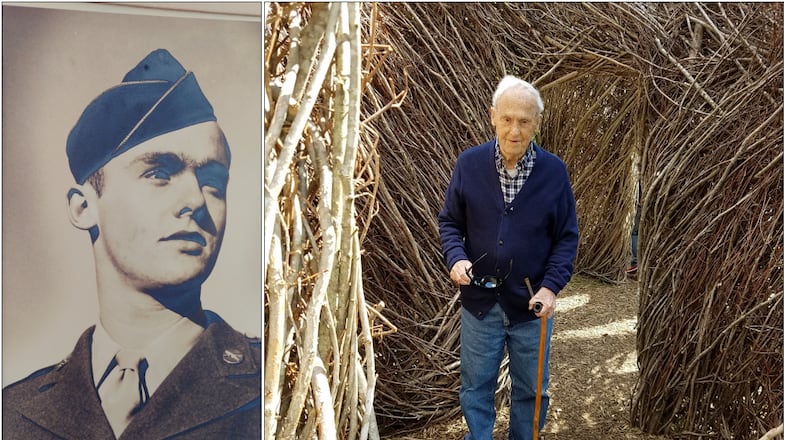Candice Easton was worried no one would come to a celebration of life ceremony she was organizing for her father in Flowery Branch.
Pfc. Cornelius Cornelssen VIII, a 93-year-old World War II veteran, outlived many of his friends, and the two that are still alive were not able to travel. Cornelssen’s wife died a few years ago, and he only had two children, Easton and her brother.
After Easton, 63, shared her worries with the Gainesville Times and that story was posted by military news site Task and Purpose, she found an outpouring of support from area veterans.
“I don’t feel alone anymore,” Easton said Friday. “So many people have shared their stories of service... I went from feeling utterly alone and hopeless to having a big safe pillow of people.”
READ | Gwinnett's biggest, most important and most read stories of 2018
Veterans from across metro Atlanta have told Easton they will celebrate her father’s life with her Saturday afternoon in Flowery Branch. She’s expecting about 60 people, significantly more than she initially anticipated.
Cornelssen died on Dec. 17 and has already been buried at Georgia National Cemetery in Canton.
After returning from war, Cornelssen did not stray far from the men he fought alongside. Many of them used the GI Bill to go to college at the same time — Cornelssen graduated from Drexel University in Philadelphia — and Easton remembers her father’s old war buddies often being around the house when she was growing up.
Easton always knew her father had fought in World War II, but for much of her life, didn’t know much beyond that. She knew about her father’s Bronze Star and two Purple Hearts, and that he had been wounded in the Battle of the Bulge, but Cornelssen was not one to sit around telling war stories.
“That’s something I find with other people with parents in the Greatest Generation,” Easton said, referring to a nickname given to the generation of Americans who served in World War II. “He only started talking about it in his 90s, only on Veteran’s Day, with other veterans.
That’s when I really started to understand the significance my father’s military service had on his life.”
Easton learned about what her father experienced in his two and a half years of service while caring for him in the last three years of his life. While gradually losing some of his abilities to dementia, Cornelssen told his daughter of the time he spent as a machine gunner in the 101st Infantry Regiment.
“I learned a lot about his character, talking about weeks and weeks on end of being in foxholes being cold and his socks getting wet, all while having sniper fire going over his head every night,” Easton said. “I learned he was brave.”
Easton also had access to letters her father sent home during his time serving in the Army. She was amused that instead of action-packed stories of battle, her father discussed with his parents “mundane” things, like how the family dog was doing or what they had for breakfast.
Cornelssen’s choice of burial at Georgia National Cemetery, a military cemetery, instead of alongside his wife in New Jersey also highlighted for Easton how important Cornelssen’s service remained to him throughout his life, she said.
Hearing her father’s stories amplified her already strong admiration for him, Easton said. She believes that the time she spent caring for him made her a better person. While Cornelssen gradually lost his ability to speak in full sentences and sometimes had a difficult time understanding things Easton told him, he never failed to say “thank you” to anyone who helped him, she said.
“Before, he was my dad and I loved him. After three years of consistently being in the company of someone with such good character, I’m a changed person,” Easton said. “He’s a role model for everyone and I’m going to carry on with everything I’ve learned from him.”
Like AJC on Facebook | Follow us on Twitter
Related news:
About the Author
Keep Reading
The Latest
Featured



